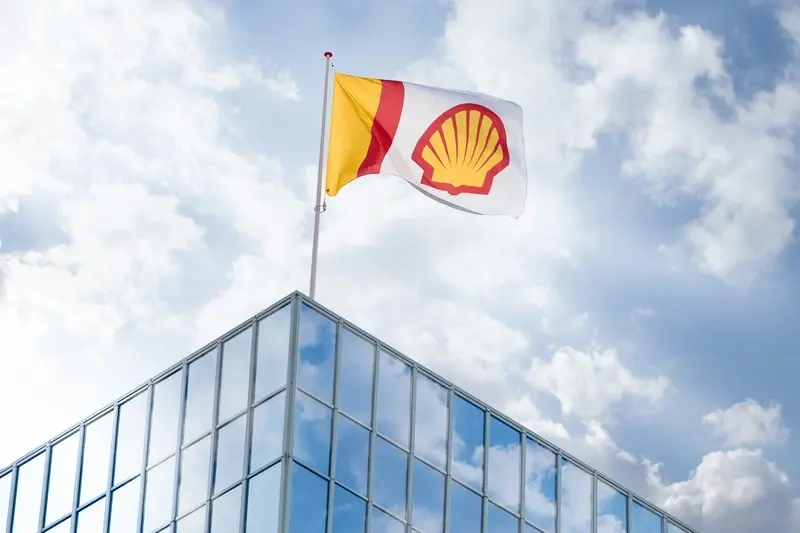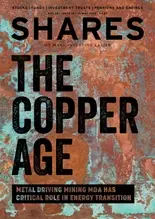
Commodities were the market focus again on Tuesday, with oil prices remaining elevated and gold pushing through $2,000 an ounce, as investors contemplated the supply and inflationary implications of a possible US and European ban on Russian energy.
Oil major Shell became the latest and biggest company with significant dealings with Russia to bow to public pressure to cut ties.
The FTSE 100 index was marginally higher, up 0.70 of a point at 6,960.18 at midday in London on Tuesday. The mid-cap FTSE 250 index was up 155.61 points, or 0.8%, at 19,325.39. The AIM All-Share index was up 1.86 points, or 0.2%, at 960.01.
The Cboe UK 100 index was flat at 694.39. The Cboe 250 was up 1.1% at 17,009.00, and the Cboe Small Companies up 1.0% at 14,076.39.
In mainland Europe, the CAC 40 in Paris was up 1.3% and the DAX 40 in Frankfurt up 0.9%.
New York was pointed to a higher open on Tuesday, bidding to recover some of the steep losses from Monday. The Dow Jones Industrial Average was called up 0.3%, the S&P 500 up 0.4% and the Nasdaq Composite was seen opening 0.1% higher. The three indices closed down 2.4%, 3.0% and 3.6%, respectively, on Monday.
AJ Bell investment director Russ Mould said: ‘It's hard to believe that just a fortnight ago a full Russian invasion was considered the worst end of a range of scenarios, oil was trading at less than $100 per barrel and Germany's defence strategy had not been transformed from a long dovish to a much more hawkish posture.
‘The costs of isolating Russia through sanctions continue to bite, with a threat from the Kremlin to cut off gas supplies. There is also continuing talk about an oil import ban, even if European countries seem reluctant.’
The European Commission is set to issue proposals on Tuesday that would rapidly free EU countries of their energy dependence on Russia.
The EU imports the vast majority of the gas it consumes. In 2019, Russian gas accounted for 41% of imports. According to a draft of the proposals seen by dpa, the commission wants EU gas storage facilities to be filled to at least 80% capacity on average by October, the beginning of the cold season. A commission spokesperson said facilities were currently at less than 30% capacity on average.
The bloc is looking for new sources of gas, especially liquefied natural gas. According to the draft, talks are under way with major LNG buyers including Japan, South Korea, China and India, to divert surplus supplies to Europe by sea route.
Russian Deputy Prime Minister Alexander Novak warned that a ban on Russian oil imports would have ‘catastrophic’ consequences, as Western allies consider further sanctions on Moscow over Ukraine.
‘A ban on Russian oil will lead to catastrophic consequences for the global market. The surge in prices will be unpredictable - more than $300 per barrel, if not more,’ Novak said in remarks carried by Russian news agencies. Novak added that it would be ‘impossible’ to quickly replace Russian oil on the European market.
Brent oil was quoted at $126.70 a barrel around midday Tuesday in London, up from $123.22 late Monday, to where the price had retreated after having neared a 14-year high of $140.
Shell was up 1.1%. It said it will withdraw from involvement in all Russian hydrocarbons, including crude oil, petroleum products, gas and liquefied natural gas, following Russia's attack on Ukraine. The Shell chief executive also apologised for buying a cargo of Russian oil.
Meanwhile, the London Metal Exchange suspended trade in nickel, after the base metal rocketed to a record peak above $100,000 on Russian output concerns.
‘Following further unprecedented overnight increases in the three-month nickel price, the LME has made the decision to suspend trading for, at minimum, the remainder of today,’ it said in a statement after nickel spiked to $101,365 per tonne.
Gold stood at $2,009.10 midday Tuesday, sliding back from nearly hitting $2,020 earlier in the session, but the safe-haven metal remains up from $1,978.34 late Monday.
In London, Fresnillo was 6.5% higher. The miner delivered annual profit and revenue growth on gold production that exceeded its guidance and higher precious metal prices.
For 2021, pretax profit improved 11% to $611.5 million from $551.3 million, as revenue grew to $2.70 billion from $2.43 billion.
The Mexico City-based precious metals miner said it was able to produce 53.1 million ounces of silver in 2021. This was marginally below guidance, with its silver output expected to be between 53.5 million and 59.5 million ounces.
Fresnillo's gold production, however, was ahead of guidance.
The miner forecasted an output in the range of 675,000 and 725,000 ounces, down 12% from its output of 769,618 ounces in 2020, but exceeding this guidance with a production of 751,200 ounces. This was down only 2.4% compared to 2020.
The average realised silver price was $24.9 per ounce, an increase of 17% over the previous year. Meanwhile, gold prices remained relatively flat at $1,795.0 per ounce. Average prices for zinc and lead increased by 32% and 22%, respectively.
In the FTSE 250, IWG advanced 9.9%. It said it plans to merge some of its digital and technology assets with The Instant Group, before demerging the entity through a stock market listing by the end of next year.
Explaining the merger, Luxembourg-based IWG said it will invest £270 million to acquire the shares of selling shareholders and provide capital for growth, with The Instant Group management investing a further £50 million into the merger.
The Instant Group is a flexible workspace platform and services provider which operates in North America, Europe and Asia. By the end of 2023, the merged company will be spun out via a listing on US or UK markets.
Separately, IWG reported a narrowed loss in 2021 of £259.4 million, trimmed from 2020's loss of £613.3 million.
The narrowed loss was driven by a 21% plunge in cost of sales to £1.89 billion from £2.38 billion, while revenue slipped by the lesser amount of 8.2% to £2.23 billion from £2.43 billion.
At the other end of London midcaps, high street bakery chain Greggs shed 5.4%.
The company lifted its annual dividend, declared a special payout and posted a marked earnings improvement, though the baker cautioned that tougher times could be looming.
In the year that ended January 1, Greggs swung to a pretax profit of £145.6 million from a £13.7 million loss the year before.
Revenue surged 52% to £1.23 billion from £811.3 million in 2020 and was up 5.3% from 2019's revenue of £1.17 billion, before the onset of the pandemic.
Like-for-like sales from company-managed stores were 3.3% below pre-virus levels. The measure does not include franchises.
Greggs declared a total dividend of 57.0p, after withholding its shareholder payout in 2020. In addition, it declared a 40.0p special payout, to be released in April.
In the first nine weeks of 2022, like-for-like sales in company-managed shops were up 3.7% compared to the same period in 2020, and up a sharp 44% against the lockdown-affected period in 2021.
Greggs, however, warned cost pressures will be a ‘particular feature’ this year.
‘These pressures are currently more significant than our initial expectations,’ Greggs cautioned.
‘As ever, we will work to mitigate the impact of this on customers, protecting Greggs' reputation for exceptional value in the freshly prepared food-to-go market. Given this dynamic, we do not currently expect material profit progression in the year ahead.’
The pound was quoted at $1.3106 midday Tuesday, soft on $1.3128 at the London equities close Monday. The euro was priced at $1.0884, up from $1.0860.
The eurozone's economy grew by 4.6% on an annual basis in the fourth quarter, according to the latest estimate from Eurostat on Tuesday.
The latest reading was in line with a Eurostat flash estimate in February. Growth was achieved despite the highly contagious Omicron wave spreading through Europe at the end of 2021, hurting the services sector in particular.
Quarter-on-quarter, the single currency bloc's gross domestic product was 0.3% higher, also in line with the previous estimate.
For 2021 as a whole, the eurozone economy expanded by 5.3%, recovering somewhat after a 6.4% fall in 2020.
Against the yen, the dollar was trading at JP¥115.64, up from JP¥115.45.
Copyright 2022 Alliance News Limited. All Rights Reserved.




